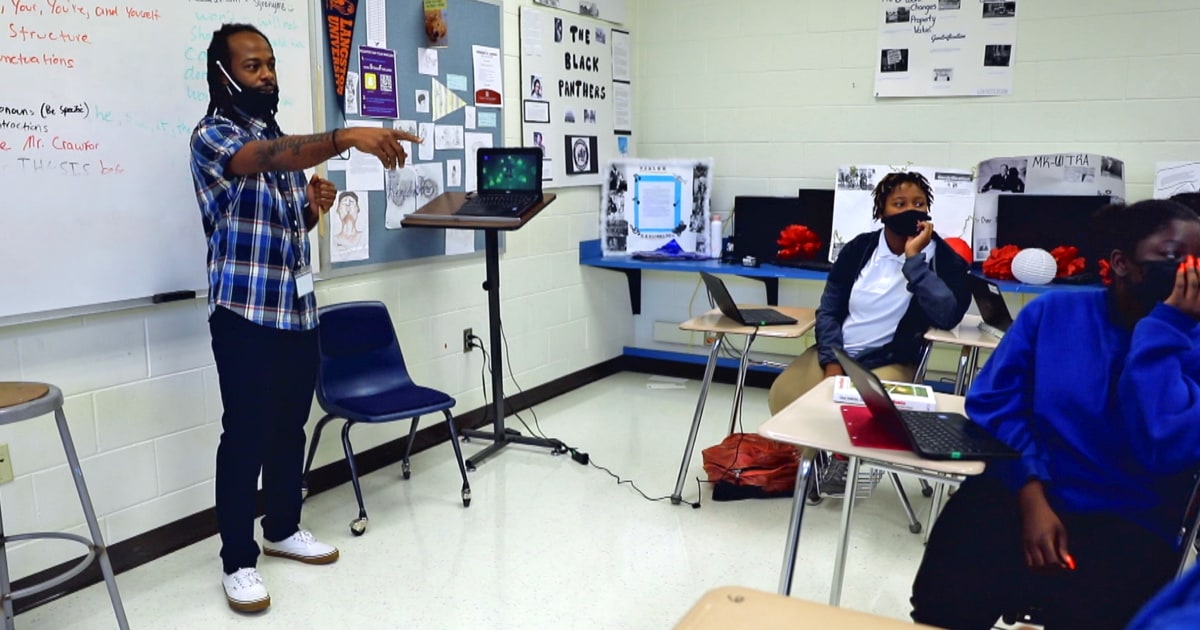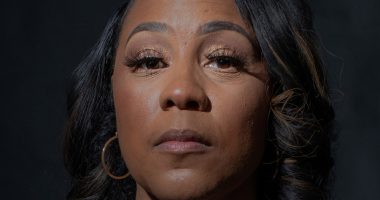
OKLAHOMA CITY — A coalition of civil rights groups sued the state of Oklahoma on Tuesday over a law limiting instruction about race and gender in public schools. It is the first federal lawsuit to challenge a state statute implemented to prevent the teaching of critical race theory.
The suit, backed by the American Civil Liberties Union and the Lawyers’ Committee for Civil Rights Under Law, argues that HB 1775, which took effect in May, violates students’ and teachers’ free speech rights and denies people of color, LGBTQ students and girls the chance to learn their history.
The Oklahoma law bans teaching that anyone is “inherently racist, sexist or oppressive, whether consciously or unconsciously,” or that they should feel “discomfort, guilt, anguish or any other form of psychological distress” because of their race or sex. Under rules imposed by the state, teachers or administrators found in violation of the law can lose their licenses, and schools can lose accreditation.
For more on this story, watch “MTP Reports” on NBC News NOW at 9 p.m. ET Thursday or streaming on Peacock beginning Friday.
The lawsuit asks a federal judge to immediately halt enforcement of the law and declare it unconstitutional under the First and Fourteenth amendments.
“HB 1775 is a direct affront to the constitutional rights of teachers and students across Oklahoma by restricting conversations around race and gender at all levels of education,” said Megan Lambert, the legal director of the ACLU of Oklahoma.
Gov. Kevin Stitt, a Republican, did not immediately respond to a request for comment. He has said previously that the law would ensure that no taxpayer money would be used “to define and divide young Oklahomans about their race or sex.”
Over the past year, conservative activists have accused public and private schools of teaching critical race theory, an academic concept examining the way institutions perpetuate racism that is typically taught in graduate schools. School district leaders across the country have said they do not teach critical race theory, but conservative activists have added the label to any discussions about race that they consider too progressive.
Oklahoma is one of five Republican-controlled states to have passed laws limiting how schools teach race and gender this year. Other states, including Alabama, Georgia and Florida, have limited discussions of race in schools through decrees by education officials, while states such as Texas approved measures requiring schools to present contrasting viewpoints on contentious issues.
Legislators in Oklahoma defended HB 1775 when it passed in the spring as a measure that would prevent teachers from making white students feel personally responsible for past racism. They also said it would protect students of color from racial stereotyping. The law’s backers said they intended to prohibit classroom conversations about concepts like “systemic racism” and “intersectionality” to prevent “indoctrination” of students.
Genevieve Bonadies Torres, a attorney with the Lawyers’ Committee for Civil Rights Under Law, said the group has received reports of Oklahoma schools striking classic literature that deals with racial conflict from the curriculum in response to the law, including “To Kill a Mockingbird” by Harper Lee, “A Raisin in the Sun,” a play by Lorraine Hansberry, and “Their Eyes Were Watching God” by Zora Neale Hurston. Districts have also instructed teachers to stop using terms like “diversity” and “white privilege” in class, according to the lawsuit.
“I felt like it was a shot at teachers like me who really want to see Black and brown kids really do something with their lives,” said Anthony Crawford, a high school English teacher in Oklahoma City. “Because they need this part of history. They need to understand what happened to their people.”
Donovan Chaney, 17, a high school senior in Crawford’s class, who is Black, said he sees the law as “the way to censor our next generation, so they don’t know all the horrible things that went on before they were born.”
The suit was filed on behalf of the University of Oklahoma chapter of the American Association of University Professors, the state chapter of the NAACP, the activist group American Indian Movement-Indian Territory and high school teacher Regan Killackey. Also among the plaintiffs are the Black Emergency Response Team, a group formed by University of Oklahoma students to combat racism after Sigma Alpha Epsilon fraternity members were captured on video in 2015 singing a song about lynching that included the N-word.
The fraternity racism scandal prompted the University of Oklahoma to take several steps to improve the campus climate, including requiring all first-year students to take part in a Freshman Diversity Experience, a one-day diversity training. The university said that because of the new law, it will now allow students to opt out of the program, as well as sexual harassment training.
“Not having these trainings and not giving incoming freshmen these tools has had a tangible impact on our clients, who say that they feel less safe on campus knowing that not only have people not been trained on these important and complicated and difficult questions, but they don’t feel supported by the university, either,” said Emerson Sykes, a staff attorney with the ACLU.
Oklahoma’s law is particularly egregious, the suit says, because it limits discussion of dark periods of the state’s history by preventing students and teachers from asking uncomfortable questions. The suit lists several moments that are difficult for educators to cover: the 1889 Land Runs, in which settlers raced to claim land in Oklahoma’s Indian Territory; the 1921 Tulsa Massacre, when a white mob attacked a community known as Black Wall Street, killing hundreds of people and destroying homes and businesses; and the state’s constitutional provision that required racially segregated schools until the U.S. Supreme Court outlawed them in 1954.
When Stitt signed HB 1775 in May, he said that educators “can and should teach this history without labeling a young child an ‘oppressor’” and that the law would not prevent that.
Tyler Kingkade reported from Los Angeles; Antonia Hylton reported from Oklahoma City.
Source: | This article originally belongs to Nbcnews.com









